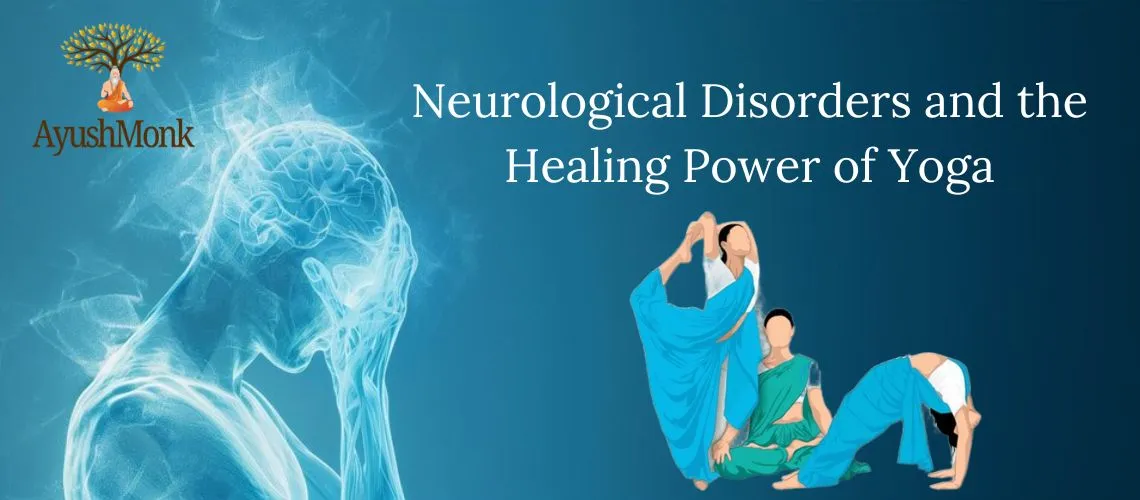
Neurological Disorders and the Healing Power of Yoga
Introduction
Neurological disorders are conditions that affect the brain, spinal cord, and nerves throughout the body. These disorders can manifest in a variety of ways, including movement issues, cognitive impairments, emotional instability, and more. Some common neurological disorders include Alzheimer’s disease, Parkinson’s disease, epilepsy, multiple sclerosis (MS), stroke, and migraines.
In modern medicine, treatment options for these conditions often include medications, physical therapy, and, in some cases, surgery. However, there is growing interest in holistic approaches such as yoga to support the management and relief of symptoms associated with neurological disorders.
Yoga, an ancient Indian practice, integrates physical postures (asanas), breath control (pranayama), and meditation (dhyana). It is well known for its mental, emotional, and physical benefits. In recent years, studies have shown yoga’s potential in enhancing brain function, improving motor skills, and reducing the emotional burden linked with various neurological conditions. This article explores how yoga can complement traditional treatments to help manage neurological disorders.
Understanding Neurological Disorders
Neurological disorders encompass a wide range of conditions that can lead to significant changes in a person’s life. Some of the most prevalent neurological disorders include:
- Parkinson’s Disease: A progressive disorder that affects movement, causing tremors, stiffness, and difficulty with balance and coordination.
- Alzheimer’s Disease: A neurodegenerative disease that results in cognitive decline, memory loss, and changes in behavior.
- Multiple Sclerosis (MS): An autoimmune disorder that damages the protective covering of nerves, disrupting communication between the brain and the body.
- Epilepsy: A disorder characterized by recurrent seizures due to abnormal electrical activity in the brain.
- Stroke: A sudden interruption in the blood supply to the brain, leading to brain damage and loss of function in various parts of the body.
Each disorder has its unique challenges, but there is a commonality in the need for managing symptoms such as muscle weakness, loss of balance, cognitive impairments, emotional stress, and chronic pain.
How Yoga Helps Neurological Disorders
-
Improvement in Brain Function Yoga has been shown to improve brain function, particularly in areas responsible for attention, memory, and information processing. Research shows that yoga can stimulate neuroplasticity, the brain’s ability to reorganize itself by forming new neural connections. This is especially helpful for patients recovering from a stroke or those experiencing cognitive decline in conditions like Alzheimer’s.
-
Reduction in Stress and Anxiety Stress exacerbates many neurological conditions, leading to worsening symptoms and slower recovery. Yoga, particularly through the practice of pranayama (breath control), helps to activate the parasympathetic nervous system, reducing stress hormones like cortisol. Regular practice can lower anxiety levels, which is beneficial for individuals suffering from conditions like epilepsy, where stress can trigger seizures.
-
Enhanced Motor Skills and Flexibility Neurological disorders like Parkinson’s and MS often result in muscle stiffness, reduced mobility, and loss of coordination. Yoga postures, when practiced regularly, can improve muscle tone, enhance flexibility, and increase range of motion. For example, gentle yoga asanas such as Tadasana (Mountain Pose), Virabhadrasana (Warrior Pose), and Trikonasana (Triangle Pose) can help patients with movement disorders regain some control over their muscles and improve balance.
-
Improved Mental Clarity and Focus Yoga and meditation improve mental clarity by enhancing concentration and reducing the mental fog that often accompanies neurological conditions. Practices like Trataka (Candle Gazing Meditation) and Nadi Shodhana (Alternate Nostril Breathing) can improve focus and calm the mind. This is particularly beneficial for those with Alzheimer’s or other neurodegenerative diseases that impact cognitive function.
-
Reduction in Chronic Pain Chronic pain is a common symptom in many neurological disorders, especially in conditions like MS or after a stroke. Gentle yoga stretches, combined with mindfulness, can help in managing chronic pain. The deep relaxation induced by yoga can lower pain perception by promoting the release of endorphins, the body’s natural painkillers.
-
Better Emotional Health Living with a neurological disorder can take a toll on one’s mental health, leading to feelings of frustration, depression, or isolation. Regular practice of yoga can enhance emotional well-being by balancing neurotransmitters like serotonin and dopamine. Techniques such as Yoga Nidra (deep relaxation) and Savasana (Corpse Pose) are particularly effective in combating feelings of depression and improving overall mental health.
Specific Yoga Poses for Neurological Disorders
Here are a few yoga postures and breathing techniques that are beneficial for managing symptoms of neurological disorders:
1. Adho Mukha Svanasana (Downward-Facing Dog Pose)
- Helps strengthen muscles and improve balance, particularly for individuals with Parkinson’s or MS.
2. Viparita Karani (Legs-Up-the-Wall Pose)
- Promotes relaxation and increases circulation, which can be helpful for stroke recovery and managing MS-related fatigue.
3. Bhujangasana (Cobra Pose)
- Stretches the spine and strengthens the muscles around the vertebrae, promoting spinal health, which is important for people with MS or Parkinson’s.
4. Uttanasana (Standing Forward Bend)
- Enhances circulation to the brain and relieves tension in the body, aiding cognitive function and improving mood.
5. Pranayama (Breathing Exercises)
- Anulom Vilom (Alternate Nostril Breathing): Balances the left and right hemispheres of the brain, helping to calm the nervous system.
- Bhramari (Bee Breath): Soothes the mind and reduces anxiety, which is particularly helpful for epilepsy and general neurological health.
Scientific Research Supporting Yoga for Neurological Health
Several studies suggest the efficacy of yoga in neurological rehabilitation:
- A study published in the Journal of Neuroscience found that yoga can increase grey matter volume in the brain, which is associated with better cognitive function.
- Research on Parkinson’s disease patients showed that yoga improved balance, flexibility, and mobility, with reduced tremors and stiffness.
- Studies on stroke rehabilitation have indicated that yoga can improve postural control, reduce fall risks, and enhance the quality of life.
Conclusion
While yoga is not a cure for neurological disorders, it is a valuable complementary practice that can significantly alleviate symptoms, improve quality of life, and help patients better manage their conditions. Yoga offers a holistic approach to healing by nurturing the connection between the mind, body, and spirit. Whether you or a loved one is dealing with Parkinson’s disease, MS, Alzheimer’s, or any other neurological condition, integrating yoga into your daily routine can offer physical, emotional, and mental relief.
Before starting any yoga program, it is essential to consult a healthcare provider or a qualified yoga therapist, especially for individuals with complex neurological disorders. With the right guidance and consistent practice, yoga can be a powerful tool in the journey toward better health and well-being.
Buy Now | Available for delivery across India.
Order Holistic products now and experience the benefits of Ayurveda.
Explore Holistic Health Products